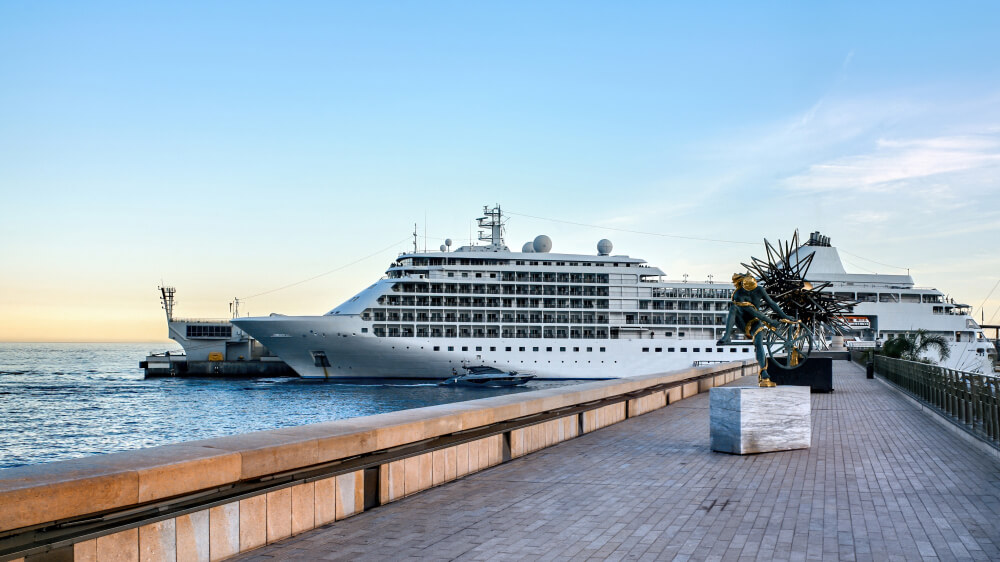Injured on a Cruise Ship? Everything You Need To Know
No one likes to hit the high seas for vacation like the Americans. Going on cruises is as much a part of the national identity as the love for baseball. The cruising industry supports nearly half a million jobs in the country.
The Port of New Orleans, also called Port Nola, is the thirteenth-largest port in the United States based on cargo value and the sixth-largest in the U.S. based on the volume of cargo handled.
The cruise companies sailing from New Orleans port include Carnival Cruises, Norwegian Cruises, Crystal Cruises, Royal Caribbean International, American Cruise Lines, and American Queen Steamboat Company.
Causes Of Injuries on Cruise Ships
Cruise ships offer tourists and travelers an entertaining, luxurious, and enjoyable vacation experience. Still, like any form of travel or leisure activity, there are potential risks of injuries that passengers should be aware of. Some of the dangers of injuries on cruise ships include:
· Slip and fall accidents.
· Food poisoning.
· Swimming pool accidents.
· Falls from heights.
· Excursion accidents.
· Disease outbreaks.
· Collisions.
· Fires.
· Assault and sexual assault.
· Elevator and escalator accidents.
· Design flaws on the ship.
· Lack of safety measures or no lifeguard on duty.
What Are Common Carriers?
Common carriers transport passengers or goods regularly at a set rate. Common carriers include cruise ships, airplanes, buses, trains, and ferries. All such entities must use the highest degree of care when transporting their cargo, whether people or goods.
Forum-Selection Clause
A forum-selection or venue clause indicates where the plaintiff (accident victim) must file the lawsuit.
Most of the major cruise lines register their vessels in foreign countries. The law of the nation of registration may apply to accidents that occur on the ship. However, most major cruise liners have headquarters in Florida. A few other cruise liners have bases in Seattle and Los Angeles. So, even if the vessel has a foreign registration, the plaintiff can file a lawsuit in the state where they have headquarters.
Notice-Requirement Clause
A notice-requirement clause points out what the passenger must do to file a claim for damages. It provides the time the plaintiff has to file lawsuits. Usually, maritime law gives a three-year statute of limitations for any personal injury claims. However, the notice-requirement clause could shorten this time to twelve months for physical injuries or a shorter time for those injuries that are not physical.
Ticket Is A Legal Contract
When a passenger purchases a ticket and boards the ship, the passenger unknowingly consents to the terms printed on the back of that ticket. Most passengers do not even look at the back of the ticket. However, a limited liability waiver is likely printed on the back of that ticket, as well as a forum-selection clause and clause regarding notice requirements. All of these provisions can affect what the passenger has the right to do if injured while on the ship.
It’s vital to read the disclaimer on the back of your passenger ticket before boarding. You may have signed a separate contract before purchasing your cruise ticket. The ticket contract might contain additional disclaimers or limitations on cruise ship liability. For example, it may state that as a passenger on international waters, you may be assuming risks or accepting a waiver of specific claims against the ship owner.
Determining Fault in Common Carrier Accidents
Most common carriers, such as cruise ships carrying out business in the United States, often have a Panama or Bahamas registration. Some entities even have their registrations in Ecuador, Malta, Switzerland, and Norway. The safety and labor regulations in these countries are more relaxed. Under maritime law, the carrier is liable for an accident only if the ship’s operator knew or should have been knowledgeable about an unsafe condition. The law recognizes that even the most careful ship operator can’t foresee every dangerous situation.
Cruise ship operators are not strictly liable for passenger injuries under Maritime Laws.
Although common carriers have a heightened duty of care under which they must protect passengers from harm, the determination of negligence under maritime law primarily hinges on whether a “reasonably careful ship operator” likely would not have known about the hazard that caused the injury.
When cruise ships fail to make necessary safety repairs, fail to take action after receiving multiple reports of safety hazards, or fail to take necessary security measures to protect guests, injured victims have the right to take legal action by a lawsuit.
If a crewmember is injured, they can seek benefits under the Longshore and Harbor Worker’s Compensation Act (LHWCA).
Cruise line accident victims may require the legal support of a highly experienced maritime injury attorney if they hope to maximize compensation.
At Bart Bernard Injury Lawyers, our lawyers have considerable professional experience in all areas of maritime law and personal injury law. We’re here to help you with legal advice if you were a guest injured on a cruise ship.
An injured guest must file a lawsuit in the Federal court in the state where the cruise shipping company has headquarters or as per the forum-selection clause on their ticket.
For injured crew members, we provide legal advice and representation. If you are a crewmember on a cruise ship, and your injuries require making a claim or filing a lawsuit, the lawyers at our Louisiana personal injury law firm can sue for compensation under the Longshore and Harbor Worker’s Compensation Act (LHWCA).
To get started with a free consultation, contact us today.





